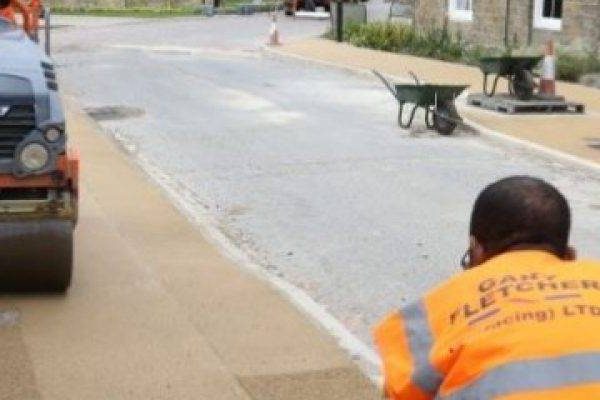
Resin Bound vs Block Paving – Which is Best?
NatraTex |
When it comes to installing a new driveway or footpath, or resurfacing an existing one, choosing the right material is essential. Some of the most popular options include resin bound surfacing and block paving, each offering their own unique characteristics. So which one should you choose? In this article, we will look at the main differences between resin bound and block paving to determine which one is best for your future project.
Composition
Resin bound surfacing is a mixture of natural aggregates such as gravel, stones or recycled glass and a clear UV-stable resin. On the other hand, block paving consists of individual rectangular or square blocks, typically made from concrete, clay or natural stone. These blocks are made to interlock when laid correctly.
Installation
Both surfacing materials require professional installation for the best results. Resin bound surfacing requires a strong concrete or tarmac base. The resin and aggregates are mixed together to form a blend, it is then applied to a set area and then troweled to achieve a smooth and even result. The curing time is relatively fast, allowing for less disruption. Block paving involves careful placement of the individual blocks on a prepared base. Installation may take longer than resin bound surfacing to achieve a stable and even surface.
Appearance
Resin bound surfacing offers a seamless, modern and smooth finish. The wide variety of decorative aggregate choices allows for customization, enabling homeowners and business owners to create a bespoke driveway or footpath that complements their property. Block paving provides a more traditional and structured finish, however, it has limited choice of colours and geometric patterns.
Maintenance
Resin bound surfacing is known for being durable and low-maintenance. Its permeable nature allows water to drain effectively, reducing the risk of flooding. Regular sweeping and occasional power washing is enough to keep resin bound applications looking their best. Block paving is also low-maintenance, however, blocks can shift over time from heavy use, meaning re-sanding or block replacement is required as well as regular weeding.
Cost
In terms of initial cost, block paving is generally more affordable upfront. Resin bound surfacing tends to be more expensive due to the materials and installation costs. While block paving is seen as the more affordable option, maintenance costs also need to be considered. The cost of re-sanding and replacing individual blocks can add to long-term expenses. On the other hand, the maintenance costs of resin bound surfacing are relatively low, meaning it is a more cost-effective choice in the long run.
Should You Choose Resin Bound or Block Paving?
The best choice of surfacing material for your future project depends on your main priorities and personal preferences. If you are looking for a more attractive and low-maintenance solution, resin bound surfacing may be the choice for you. If you are looking for the more affordable choice, opt for block paving.
That being said, resin bound and block paving are not the only surfacing materials available on the market. NatraTex is one of the best alternatives, offering similar benefits and much more. Instead, it is an asphalt bound surface course suitable for driveways, footpaths, car parks and more. Some of its benefits include resistance to weeds, fading and cracking as well as being very low maintenance and available in a wide variety of colours. Choose from our range of surfacing products including the neutral buff shades of NatraTex Cotswold to the small decorative chippings of NatraTex ChipTex.
Learn More About NatraTex
If you are interested in learning more about NatraTex, you can do so by visiting our FAQs page or booking a CDP with one of our NatraTex specialists. To view examples of projects that have used NatraTex, visit our case studies. If you have any questions regarding NatraTex products, please do not hesitate to get in touch with us today.

